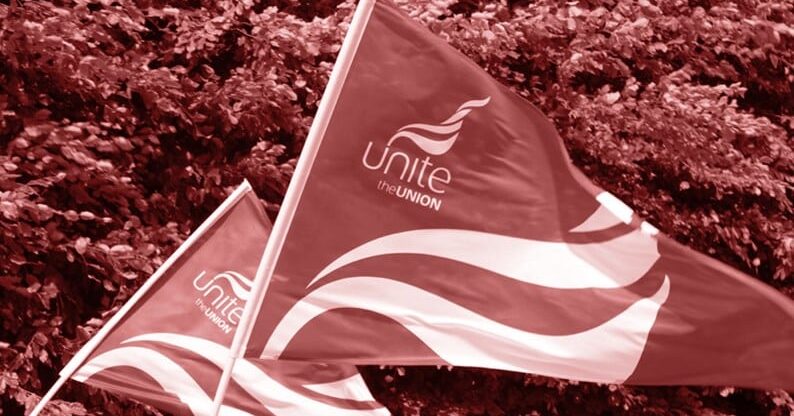

By KD Tait
Members of Unite the union have started voting to elect the general secretary of Britain’s most important trade union.
The election comes at a critical moment for the labour movement.
After the rout of the Corbyn movement, Labour’s leadership is determined to complete the purge of the left’s influence within the party.
At the same time, the government is proposing to allow hundreds of thousands of young workers to be infected with covid-19 in order to reopen the economy and get profits flowing again.
The bosses have taken advantage of the lockdowns to fill their pockets with government subsidies, while paying workers less than the minimum wage. Now the big employers are waging a major offensive against our jobs, terms and conditions through compulsory ‘fire-and-rehire’ tactics.
So far, Labour and the trade union leaders have agreed to reopen schools, which contributed to the second wave in December; accepted a real-terms pay cut for millions of key workers; and ‘opposed’ fire-and-rehire by negotiating cuts to terms and conditions.
With Labour firmly under the right’s control, the outcome of the Unite election will determine the prospects for organising resistance in the workplace, union and Labour party to the bosses’ offensive.
If Keir Starmer’s role was to make Labour safe for British bosses, then Coyne’s is to do the same for Unite, just as we enter a stormy period.
Gerard Coyne, who secured 41 per cent of the vote against Len McCluskey in the last election, is the candidate backed by Keir Starmer and the bosses. His pro-business, service-model trade unionism rolls out the red carpet for the bosses. Under his leadership Unite will sabotage not only the struggles of its own members – but those of the wider movement.
The frontrunner to stop Coyne is Steve Turner, an Assistant General Secretary, who won the backing of the ‘Broad Left’ UL faction, and secured the most nominations. His reputation as a ‘left’ is indicative of the conservative and demoralised attitude of the left bureaucracy. He was instrumental in sell-outs from Grangemouth in Scotland to British Airways in Heathrow. He has argued for close relationships between unions and the bosses in order to secure deals:
“People talk about ‘beer and sandwiches’,” but that’s where a lot of our business is done, in the evenings, in a coffee shop somewhere, just having that break and building a relationship.”
While Turner’s approach of conciliation with the Labour leadership and industrial pacifism would be preferable to the outright reactionary agenda of Coyne, his role as General Secretary would be to shift Unite to the right, seeking an accord with both the bosses and the Labour Party establishment.
Given this, it is no surprise Sharon Graham has won the support of many militant workers with her proposals to organise combine committees and adopt a more militant posture faced with compulsory redundancies. But a large part of her support stems from her denunciation of the ‘Westminster brigade’ and ‘politics’.
This presents a false dichotomy between the ‘trade union’ and ‘political’ class struggle; minimising the latter would leave us fighting with one hand tied behind our backs.
With the end of furlough and a vicious fire and rehire offensive threatening jobs, pay and conditions, workers can’t afford to ignore the critical role that Labour could play in sabotaging action – just look at the way the NEU were sold out by Starmer last year.
Graham’s claim to be ‘the workplace candidate’ is unmerited. All three candidates are career officials with salaries, job security, and living conditions most Unite members can only dream of achieving.
The threat posed by Coyne will concentrate the minds of many Unite members.
The fact that, after ten years of leadership by the Broad Left faction, the choice is between two career officials is an indictment of that strategy.
Given the inadequacy of the candidates and the danger to the whole labour movement of Unite falling to the right, the imperative is to defeat Coyne and Turner is best placed to do that. But, as far as possible, the campaign should also be used to organise workers to fight for a radically different kind of union.
While the decisive role must be played by rank and file workers taking control of their own disputes and defying the anti-union laws where necessary, the expression of this militancy on the political terrain is the fight to defeat the pro-capitalist leaders of the Labour Party. If we don’t – these leaders will be our enemies on the industrial battlefield.
Victory in the struggles to come does not ultimately depend on who leads the union, but on whether socialists organise the militant minority in a struggle to transform the union into a class struggle organisation where disputes are controlled by members, and officials subject to regular election and recall.
Our programme